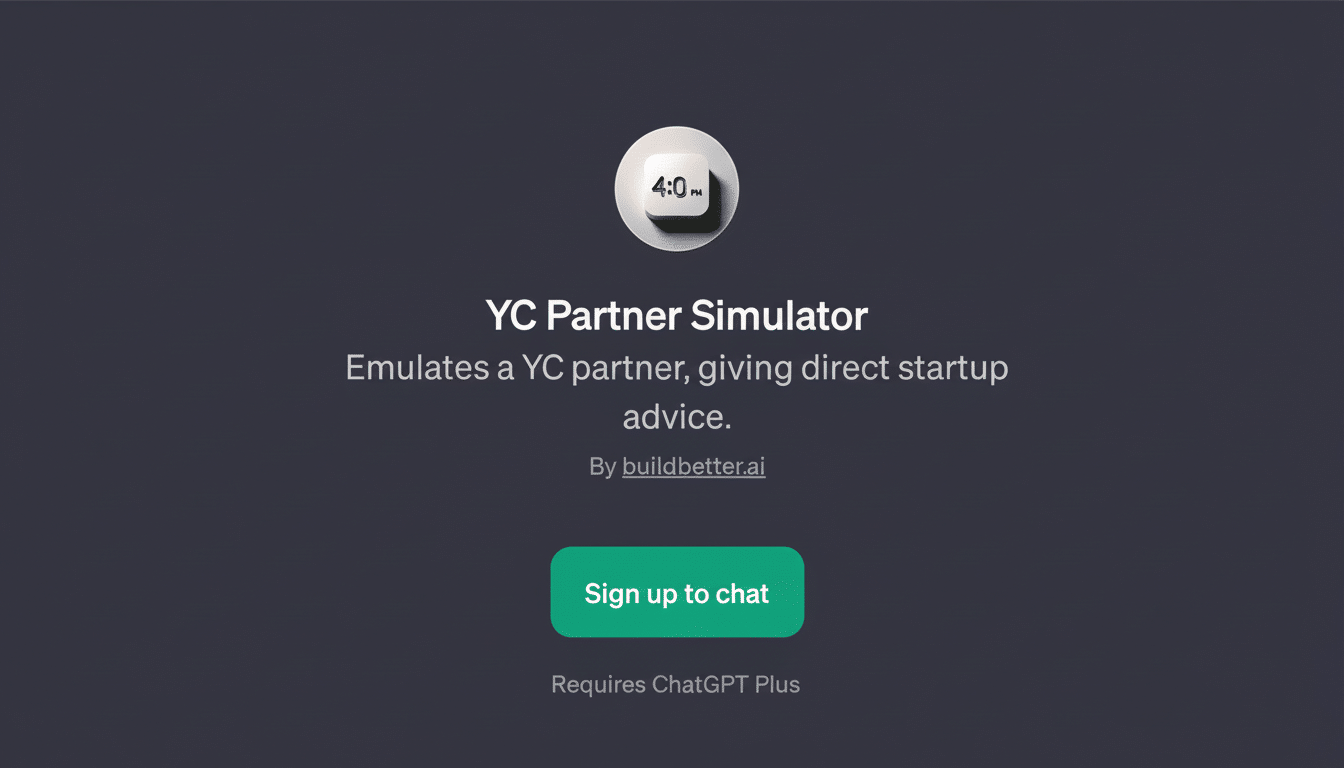Do you think you can identify the next breakout startup in minutes? Now a new indie project, YC Arena, asks you to give it a try — transforming the high-stakes judgment of Y Combinator partners into a bite-sized, feedback-rich game.
Created by a student in Berlin, the YC Partner Simulator features actual pitch videos from companies that applied to Y Combinator’s accelerator and hands out acceptances or rejections based on your decision to admit them or gaze elsewhere. Because when you decide, that’s how YC did, in fact, rule. It’s entertaining and quick — and humbling too, as anyone who has engaged in investing for years can tell you they’ve done just as poorly (i.e., losing money) at some point in a world where only something like 1 to 2 percent of applicants have made the grade by most outside estimates.

How the YC Partner Simulator Operates in Practice
The loop is straightforward: Watch a short pitch, jot down the application year, and make a call. The game also comes with more whimsical challenges — matching logos to company names, for instance, or guessing the year that a startup passed through YC — but the yea-or-nay mechanic is where things really get interesting. The result is a no-cost way to put your investor instincts up against one of the most influential accelerators there is.
It’s not just entertainment. Immediate feedback tightens your calibration. The good news is that through the efforts of a team of decision scientists associated with the Good Judgment Project, regurgitating forecasts and quickly learning how well those predictions panned out lead to improvement. The same dynamic applies here: you construct an internal model of what YC partners seem to respond well to, then stress-test it on many examples.
Why It’s So Hard to Pick Startup Winners Today
Early-stage choices are messy. Signals are weak, results are fat-tailed, and luck is loud. Partners at YC allegedly are forced to move quickly; in an oft-quoted 2016 interview, Sam Altman, then president of YC, claimed it was not uncommon for applications to be examined and evaluated in as little as 10 minutes. They see all those instances, common in previous generations, of potential recipients who dangled for years without winning, and decide: no thanks.
The game underscores the subjectivity. The clarity of a founder on the problem, their intensity, and the speed at which they iterate can win over polish or production value. And because markets change, so does the context: pitches heavy on AI, for instance, track to a broader wave of AI-first startups in YC batches and demo days.
What YC Partners Want to See in Just Minutes
If you want your in-app hit rate to go up, take a page out of YC’s own playbook. Paul Graham’s application advice reiterates a brutal sense of clarity: Say what you do in the first sentence, as simply as you can. That one filter — can the founders clearly explain the problem and solution with their jargon pants off? — ends up being shockingly predictive in a quick screen.
Other enduring heuristics that rival old-timers reference:

- founder–market fit (a reason this team needs to exist for this problem)
- evidence of pull (users, revenue, or a compelling solid proxy)
- a narrow wedge into a big market
- founder speed (how quickly they ship, learn, and iterate)
None are foolproof, but as a set they serve to make snap judgments less dumb.
Calibrate Like a Pro: Base Rates and Fast Signals
Use base rates. Consider: how frequently do startups of this type achieve product-market fit, and what are some examples of those who did — what can we learn from them? Behavioral research from institutions like Stanford and Harvard indicates that forecasters who anchor to base rates outperform those who depend on story alone.
Screen for traction-adjacent proof. In the pre-revenue pitch, just make sure there are strong proxies — waitlists that convert, pilot users who stick around, iterating really quickly, or maybe open-source engagement if you’re developer-facing. That breadcrumb is the closest thing to signal you will get in a short video.
Separately score on clarity and energy, decoupled from how good the idea was. The simulator will reward catching YC-style communication — brief, clear, and driven by the user — even if you don’t like the category personally. In practice, YC partners have to triage thousands of pitches; teams that make it easy to grasp what they do end up with a real advantage.
What This Game Teaches Founders About Clarity
For founders, the lesson isn’t that style beats substance, but that substance needs to be legible at speed. If a bystander can’t repeat your one-sentence value proposition after 10 seconds, chances are it won’t happen. It’s not just a YC thing: reporters, customers, and potential hires all work in the same cognitive box.
The simulator also makes clear survivorship bias. Plenty of outstanding companies are rejected in the early days; YC has funded thousands of startups, but even among its alumni, breakout success is atypical. A pass is a data point, not a determinant. The thing to watch for now is whether teams learn more quickly than the market evolves.
At the end of the day, YC Arena is a smart mirror. It’s not going to make an investor out of you overnight, but it can help sharpen your pattern recognition abilities and expose blind spots, nudging you toward clearer thinking. And if it helps you turn your own pitch into a concise, who-can-forget-this sentence, that’s a win — game or no game.

